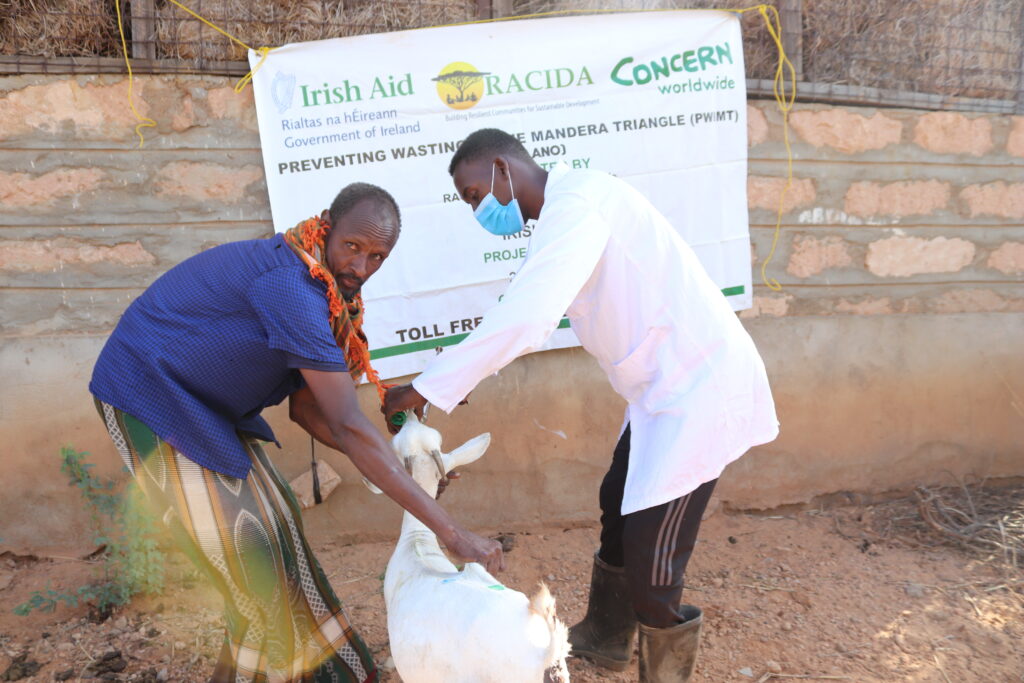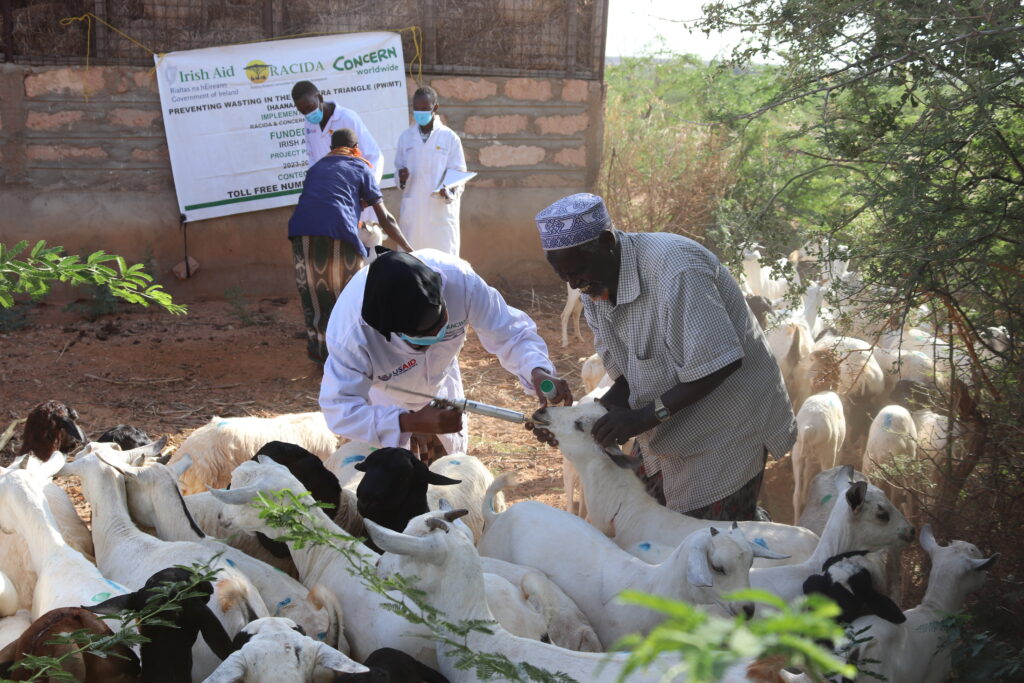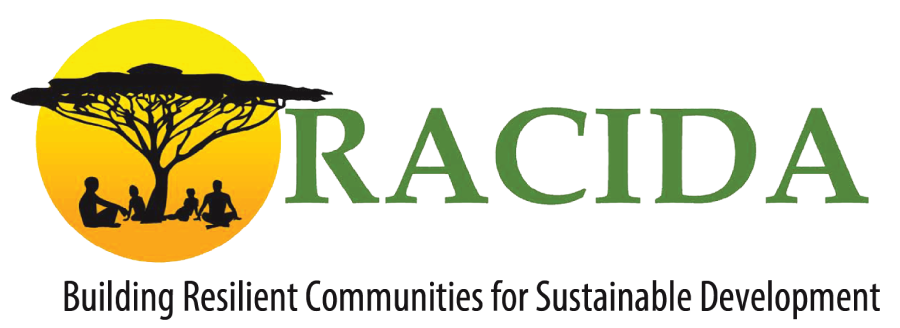BY AHMED HUSSEIN:

Ali Adan, a seasoned goat herder from Fiqow in Mandera East, is a symbol of resilience and determination. In his early 50s, with years of experience etched into the lines on his face, he has weathered countless challenges to sustain his family and community. For Ali, his goats are not just a source of income but a lifeline, providing essential nutrition and cultural value to his household. Despite facing harsh environmental conditions and recurrent livestock diseases, his unwavering spirit has kept him going. Recently, his resilience was rewarded through an impactful intervention by RACIDA, Concern Worldwide, and the Mandera County Government’s Veterinary Department.
Mandera County, nestled in Northern Kenya’s arid and semi-arid lands (ASALs), is predominantly a pastoralist region. Small ruminants, especially goats and sheep, are central to the local economy. However, the community faces significant challenges, including recurrent droughts, disease outbreaks, and limited access to veterinary services, threatening their primary source of livelihood.

To address these challenges, RACIDA, in collaboration with Concern Worldwide and the Mandera County Government’s Veterinary Department, launched a 15-day intervention under the Hanaano Project, funded by Irish Aid. This initiative aimed to enhance animal health and bolster community resilience. Key activities included vaccination against Peste des Petits Ruminants (PPR), deworming, and comprehensive treatments for various diseases and tick infestations.
Over the 15-day period, the intervention achieved remarkable results. More than 65,000 goats and sheep were vaccinated against PPR, a highly contagious viral disease that can cause high mortality rates if not promptly addressed. Additionally, over 38,000 shoats received deworming treatments. Numerous animals also received treatments for various ailments and preventive care for tick infestations. This extensive effort benefited a total of 3,460 households, including Ali Eden’s.
For Ali, the impact was profound. “This deworming exercise has been a blessing,” he shared. “Before, my goats were constantly falling sick, and I lost many. Now, they are healthier and stronger. My family’s livelihoo has improved, and we have more milk for our children.”
The intervention not only improved the health and productivity of the livestock but also had broader implications for the communities involved. Healthier animals translate into increased milk and meat production, enhancing food security and nutritional status for families. Moreover, by reducing the mortality and morbidity rates of small ruminants, the initiative helped stabilize and potentially increase household incomes, fostering economic resilience.
The success of this intervention underscores the importance of sustainable livestock practices in promoting economic stability and community well-being. It highlights the critical role of collaborative efforts between local organizations, international partners, and government bodies in addressing the multifaceted challenges faced by pastoralist communities in ASAL regions.
RACIDA remains committed to continuing its support communities in Mandera and beyond, striving to implement sustainable and impactful projects that enhance community resilience and improve livelihoods. The Hanaano Project stands as a testament to what can be achieved through concerted efforts and dedicated support, paving the way for a more resilient and prosperous future for the communities served. For Ali Adan, the intervention has not only improved his livelihood but also strengthened his resolve to continue caring for his goats, ensuring a better future for his family.
